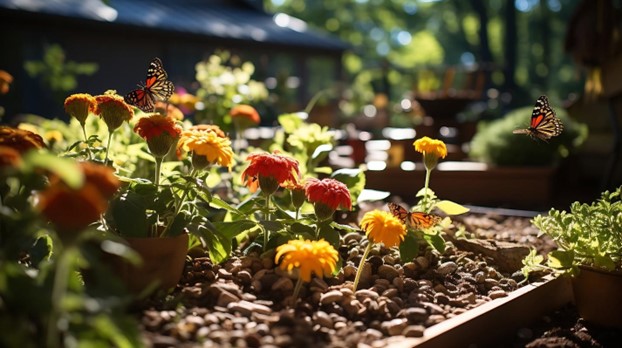
In many regions across the globe, rapid urbanization and human activity have dramatically altered natural habitats, posing significant threats to local wildlife. However, there are numerous strategies and simple actions that individuals and communities can undertake to support and protect the biodiversity right in their own backyards. John Wnek of New Jersey explains that understanding the challenges these species face and taking proactive steps can help preserve our natural heritage for future generations.
The Challenges Faced by Local Wildlife
Local species often struggle with several key issues, primarily habitat loss, pollution, and competition from invasive species. Urban sprawl means more forests, meadows, and wetlands are converted into housing developments, roads, and commercial areas, fragmenting habitats and making it more difficult for species to find the resources they need to survive. John Wnek of New Jersey explains that pollution from chemicals, plastics, and other waste products can poison water and food sources. Invasive species introduced by human activity can outcompete native species for food and habitat, further stressing local ecosystems.
Simple Actions to Support Local Wildlife
Supporting local wildlife starts with small, manageable actions that anyone can undertake. John Wnek of New Jersey provides some strategies to consider:
● Create Wildlife-Friendly Gardens
Transform your garden into a haven for local wildlife. Plant native species, which are better adapted to the local climate and provide the most suitable nourishment for native wildlife. Avoid neat, overly manicured spaces and instead allow parts of your garden to grow wild to provide shelter. Install bird feeders, a small pond, or a bat box to attract different species. Remember to use organic pesticides or, better yet, none at all. A good way to maintain an environmentally conscientious landscape is described in Jersey-Friendly Yards.
● Keep Water Sources Available and Clean
Water is a critical resource for wildlife, especially in urban areas where natural sources may be scarce. By setting up birdbaths, maintaining a small backyard pond, or even just keeping a shallow dish of water out, you provide essential hydration. Ensure the water is clean and replenish it regularly as stagnant water can be a breeding ground for mosquitoes.
● Participate in or Initiate Local Conservation Programs
Many communities have local conservation programs that work to protect and restore habitats. Participating in or supporting these efforts can make a significant difference. This might involve volunteer work, donating to local environmental groups, or even advocating for wildlife-friendly policies at local government meetings.
● Reduce, Reuse, and Recycle
Managing waste effectively can significantly reduce pollution and its impacts on local wildlife. Engage diligently in recycling programs, compost organic waste, and reduce the amount of single-use plastics. Consider purchasing products made from recycled materials to support the market for recycled goods.
● Educate Yourself and Others
Awareness is a powerful tool. John Wnek of New Jersey emphasizes learning about the wildlife in your area and the challenges they face. Educate your friends, family, and community about the importance of biodiversity and what they can do to help. Schools and community centers often appreciate guest speakers or materials on local wildlife conservation.
● Support Eco-Friendly Businesses and Practices
Choose to support businesses that prioritize sustainability. Whether it's a local farm practicing sustainable agriculture or a company committed to reducing its environmental footprint, your support helps promote eco-friendly practices.
● Advocate for Urban Planning that Includes Green Spaces
Urban areas need green spaces not just for human recreation, but for wildlife as well. Advocate for the inclusion of parks, green roofs, and other habitats in urban planning. John Wnek of New Jersey explains that these areas are vital for species trying to navigate and live in our cities.
● Participate in Citizen Science Projects
Many organizations and research groups run projects that rely on citizen scientists to help gather data on local species. Participating in these can provide crucial information that helps track wildlife health and populations. The role of citizen science is becoming more vital to the success of wildlife assessment projects.
● Practice Responsible Pet Ownership
Pets, particularly cats, can be predators of local wildlife. Keep cats indoors or supervise them outside to prevent them from hunting birds and other small animals. Similarly, ensure that dogs are kept on leashes where required and do not disturb wildlife. Remember, there is a fine line between what is needed to maintain a healthy wildlife balance and a dominant species taking over.
● Support Legislation that Protects Wildlife
Stay informed about local and national legislation that affects wildlife and habitats. Voting for measures that protect natural areas and support conservation funding can result in significant gains for wildlife protection.
Each of us holds the power to make a difference in our local environment. John Wnek of New Jersey emphasizes that by taking small, consistent actions to support and protect our local wildlife, we contribute to a richer, more diverse, and resilient community. Engaging in these efforts not only benefits nature but enriches our own lives, connecting us more deeply with the natural world around us.
 In many regions across the globe, rapid urbanization and human activity have dramatically altered natural habitats, posing significant threats to local wildlife. However, there are numerous strategies and simple actions that individuals and communities can undertake to support and protect the biodiversity right in their own backyards. John Wnek of New Jersey explains that understanding the challenges these species face and taking proactive steps can help preserve our natural heritage for future generations.
In many regions across the globe, rapid urbanization and human activity have dramatically altered natural habitats, posing significant threats to local wildlife. However, there are numerous strategies and simple actions that individuals and communities can undertake to support and protect the biodiversity right in their own backyards. John Wnek of New Jersey explains that understanding the challenges these species face and taking proactive steps can help preserve our natural heritage for future generations.